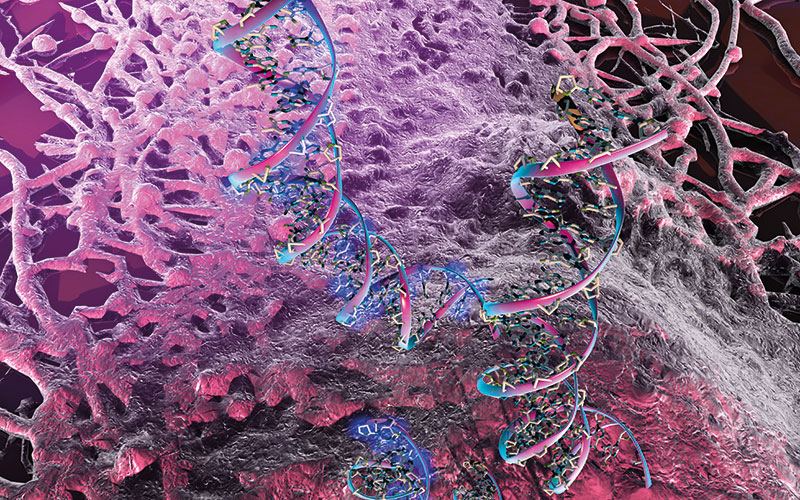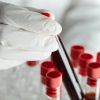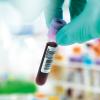A team of scientists has evaluated the first “tumour-uninformed” test that detects cancer DNA circulating in the blood of patients following treatment.

Unlike previous tests for circulating tumour DNA (ctDNA) in the blood, this test, called Guardant Reveal, does not require knowledge of the particular mutations that were present in the patient’s tumour.
The team evaluated the tumour-uninformed ctDNA assay to detect residual cancer cells in patients who underwent surgery for colorectal cancer.
Instead of relying on DNA sequencing of individual patients’ tumours, the approach looked for known cancer-specific alterations.
When the researchers analysed ctDNA results from 84 patients and examined how accurately the results correlated with cancer recurrence, they found that this “plasma-only” approach was similar in sensitivity and specificity to tumour-informed approaches.
Image credit | Science Photo Library




